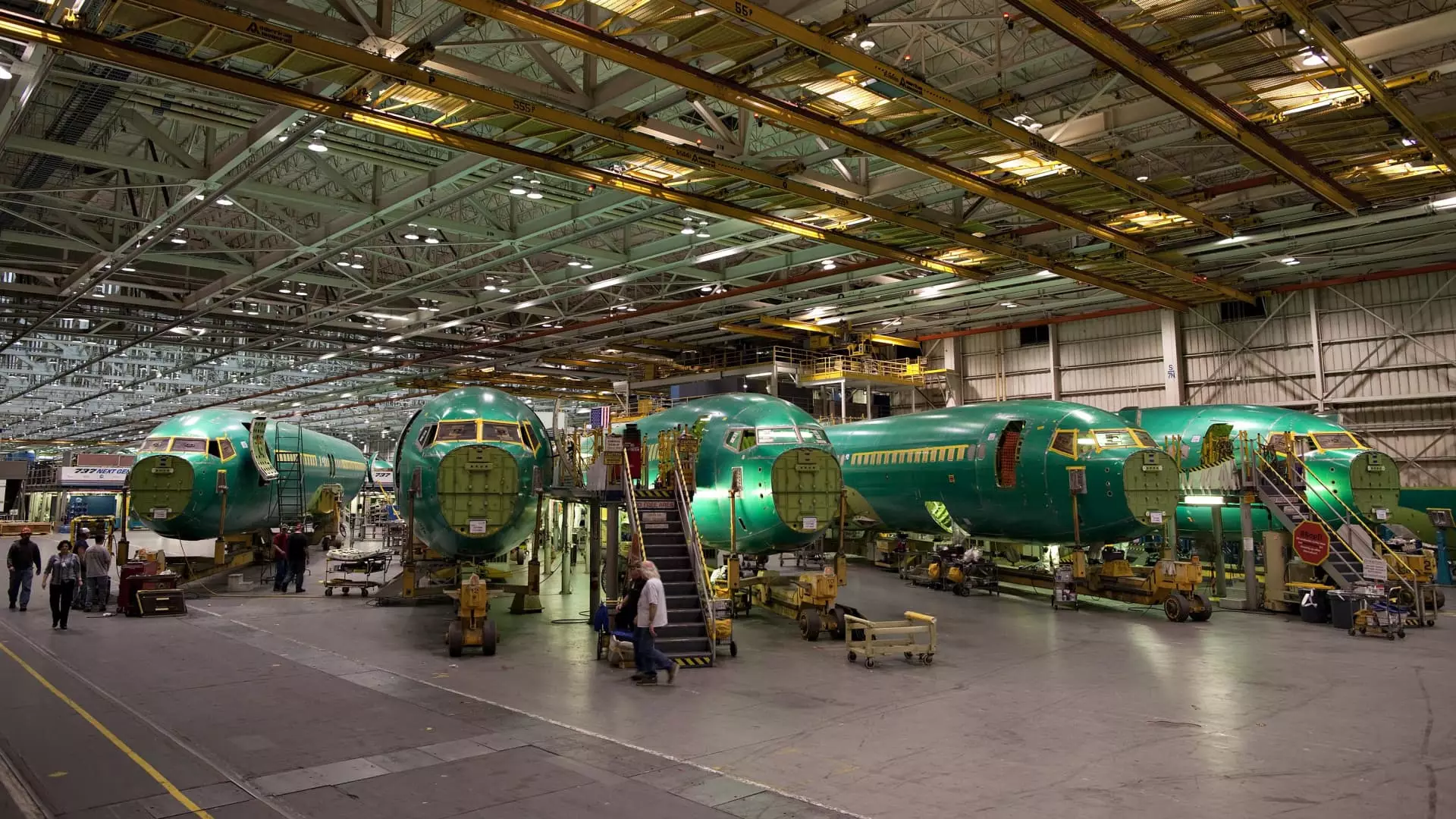Boeing announced its decision on Monday to acquire Spirit AeroSystems, the struggling fuselage maker, in an all-stock deal aimed at enhancing safety and quality control. The deal involves Boeing paying $37.25 a share in its stock for Spirit, resulting in an equity value of $4.7 billion. With the inclusion of Spirit’s debt, the total transaction value reaches $8.3 billion, as stated by Boeing. This move comes after a series of incidents that have tarnished Boeing’s safety reputation, including a fuselage panel blowing out midair from a Boeing 737 Max 9. The acquisition is seen as a step towards strengthening quality and ensuring that Boeing remains a reliable aircraft manufacturer.
Spirit AeroSystems, based in Wichita, Kansas, is responsible for manufacturing fuselages for the 737 and components for Boeing’s 787 Dreamliners. The company was formed in 2005 when Boeing divested its operations in Kansas and Oklahoma. Approximately 70% of Spirit’s revenue came from Boeing, with the remaining 25% from providing parts to Boeing’s competitor, Airbus. The acquisition of Spirit by Boeing is expected to align the production systems and workforces of both companies, as emphasized by Boeing’s CEO, Dave Calhoun. This alignment is crucial to strengthening quality control and ensuring Boeing’s standing in the aerospace industry.
Upon completion of the acquisition, Boeing anticipates closing the deal by mid-2025, pending regulatory approval and agreement from Spirit shareholders. The acquisition also involves the sale of Spirit’s operations dedicated to Airbus planes to Airbus, with a compensation of $559 million. This transaction includes manufacturing lines in Belfast, Northern Ireland, Wichita, Kansas, and North Carolina. The acquisition of Spirit not only aims to bolster Boeing’s production capabilities but also positions Spirit’s CEO, Pat Shanahan, as a potential replacement for Calhoun. The acquisition is a strategic move to address the production issues that have plagued Boeing in recent years.
Boeing’s reputation for safety has been under scrutiny following a series of production problems, including defects in Spirit-made fuselages and misconnected fuselage panels. The company has taken steps to enhance quality control by accepting only defect-free fuselages. This approach minimizes the need for repairs or additional manufacturing steps out of sequence, thereby reducing the likelihood of errors. However, the Federal Aviation Administration has expressed concerns about Boeing’s production lines and has indicated that production expansion will only be permitted once quality standards are met. Boeing’s commitment to improving safety and quality is crucial to restoring trust in its aircraft.
The crisis resulting from the production issues has led to a slowdown in Boeing’s new plane deliveries and financial losses for both Boeing and Spirit. Boeing reported a cash burn of approximately $8 billion in the first half of 2024, reflecting the financial challenges facing the company. Additionally, Boeing’s shares have declined by more than 30% this year, indicating investor concerns about the company’s performance. The acquisition of Spirit AeroSystems signifies Boeing’s dedication to addressing its production challenges and strengthening its position in the aerospace market.
Boeing’s decision to acquire Spirit AeroSystems underscores its commitment to improving safety and quality in aircraft manufacturing. The acquisition is a strategic move to align production systems, enhance quality control, and address production issues that have impacted Boeing’s reputation. By integrating Spirit AeroSystems into its operations, Boeing aims to strengthen its position in the aerospace industry and restore confidence among stakeholders.


Leave a Reply